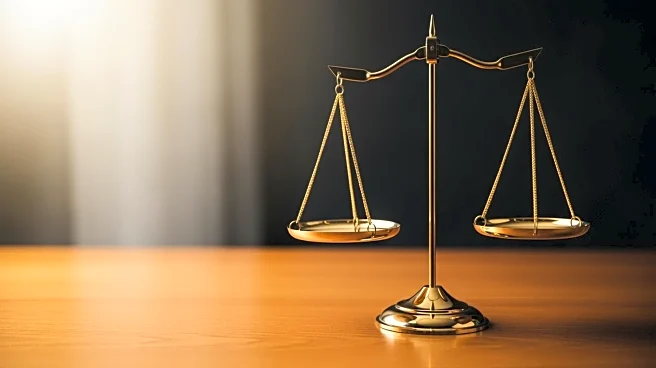What's Happening?
The Court of Arbitration for Sport (CAS) has rejected two requests for urgent provisional measures filed by the Israeli Gymnastics Federation (IGF) and Israeli gymnasts against the International Gymnastics Federation (FIG).
The appeals were made following Indonesia's decision not to grant visas to Israeli athletes for the 53rd FIG Artistic Gymnastics World Championships in Jakarta. The Indonesian government, citing its policy to sever ties with Israel until Palestinian independence is achieved, refused entry to the athletes. The IGF's first appeal challenged FIG's acknowledgment of Indonesia's decision, while the second appeal sought measures to ensure Israeli participation or to relocate or cancel the championships. CAS dismissed the first appeal due to lack of jurisdiction and denied provisional measures in the second appeal, citing the balance of interests between the IGF and FIG.
Why It's Important?
This decision highlights the complex interplay between sports governance and international politics. The refusal to grant visas to Israeli athletes underscores ongoing geopolitical tensions and their impact on international sporting events. The CAS ruling reflects the challenges sports federations face in navigating political disputes while maintaining the integrity and schedule of competitions. The decision may set a precedent for how similar cases are handled in the future, affecting athletes' participation rights and the responsibilities of sports organizations in ensuring equitable access to competitions.
What's Next?
As the IGF's second appeal progresses to a final award, the case remains significant, especially since the championships have already occurred. The relief sought by the IGF, including measures to guarantee Israeli participation, is no longer feasible, potentially rendering the appeal moot. The outcome may influence future decisions on the handling of international sports events amid political disputes, prompting sports bodies to reassess their policies on event locations and participant eligibility.
Beyond the Headlines
The case raises ethical questions about the role of sports in political conflicts and the responsibilities of international federations in promoting inclusivity. It also highlights the potential for sports to be used as a platform for political expression and the challenges in balancing this with the need for neutrality and fairness in competition. The decision may lead to discussions on the need for clearer guidelines and policies to address similar situations in the future.








